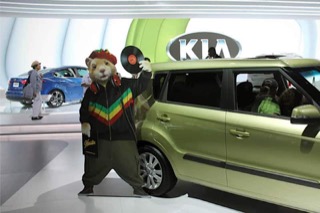Rodents Are Attracted to Hyundai’s Soy-Based Wire Coating

Hyundai is being sued for using soy-based wire insulation that attracts rabbits, mice, squirrels and other creatures. The Hyundai lawsuit alleges the automaker denies there is a problem by using the soy-based wiring and since no defect exists, any replacement parts will also consist of soy products.
The soy-based materials are more biodegradable and generally cost less than their plastic counterparts.
When an owner takes the vehicle for repairs due to the chewed wires, Hyundai merely removes the gnawed materials and installs the same soy-based wiring and engine-related components, resulting in a continuous cycle of failures. Because the damage isn't covered under warranty, owners can be left with spending up to thousands of dollars to replace wiring that rodents will once again attack.
Honda, Toyota, Kia, and Subaru are all facing similar lawsuits.
More information on carcomplaints.comWant to Learn More?
Hyundai's Soy Wiring Is a Little Too Eco-Friendly
The wiring in cars used to be coated in a petroleum-based plastic, but recently automakers, including Hyundai, have switched to a soy-based material. The soy is biodegradable and helps keep plastic out of the landfill (yay!). Unfortunately

Related Hyundai Generations
At least one model year in these 10 generations have a relationship to this story.
We track this because a generation is just a group of model years where very little changes from year-to-year. Chances are owners throughout these generation will want to know about this news. Click on a generation for more information.
4th Generation Accent
- Years
- 2011–2017
- Reliability
- 34th out of 50
- PainRank™
- 5.78
- Complaints
- 119
5th Generation Azera
- Years
- 2012–2016
- Reliability
- 19th out of 50
- PainRank™
- 2.01
- Complaints
- 27
5th Generation Elantra
- Years
- 2011–2016
- Reliability
- 49th out of 50
- PainRank™
- 45.43
- Complaints
- 937
2nd Generation Genesis Coupe
- Years
- 2013–2016
- Reliability
- 11th out of 50
- PainRank™
- 0.86
- Complaints
- 12
3rd Generation Santa Fe
- Years
- 2013–2018
- Reliability
- 46th out of 50
- PainRank™
- 19.69
- Complaints
- 270
6th Generation Sonata
- Years
- 2011–2014
- Reliability
- 50th out of 50
- PainRank™
- 68.11
- Complaints
- 1312
7th Generation Sonata
- Years
- 2015–2019
- Reliability
- 45th out of 50
- PainRank™
- 18.44
- Complaints
- 277
2nd Generation Tucson
- Years
- 2010–2015
- Reliability
- 41st out of 50
- PainRank™
- 14.64
- Complaints
- 198
3rd Generation Tucson
- Years
- 2016–2020
- Reliability
- 42nd out of 50
- PainRank™
- 15.27
- Complaints
- 345